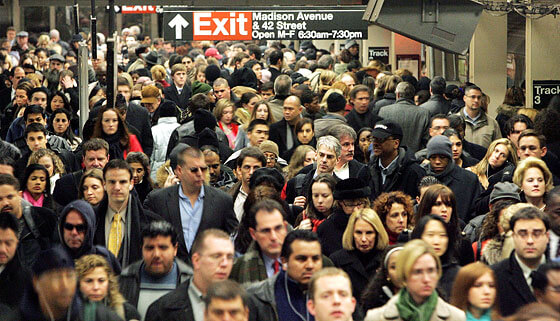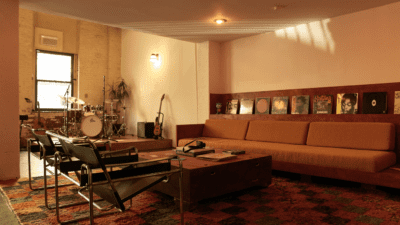New York City Prepares for Arrival of Ebola


Following Thomas Duncan’s diagnosis of Ebola last week in Dallas—the first case of the disease in the United States—it seemed only a matter of time before certain people (i.e. politicians and members of the media) began to speak about the possibility of an Ebola epidemic sweeping the United States (and also, we guess, the world; but let’s face it, most of these fear-mongers are appealing directly to the narcissism of panicking Americans). And, look, we get it. We do! The thought of a highly communicable disease whose symptoms are not always immediately apparent running rampant through this country is horrifying. Of course, the reality of said highly communicable disease currently ravaging several West African countries is even more horrifying, because it’s not speculative, it’s factual. And so before idly wondering if that person with the runny nose next to you on the subway might just be exposing you to a fatal disease, pause for a moment to get outside your own head and think about the fact that children are being left to die alone, wallowing in their own and other people’s filth and that mothers can’t even hug their dying babies, because not every country has the resources to provide for the health and care of their citizens the way this one does, imperfect as that health care system may be.
But so anyway, Ebola in New York. The New York Times reports that city health officials have taken measures to protect against the virus by doing things like reaching out to the city’s West African communities by “encouraging anyone who may be sick and who has been exposed to Ebola in recent weeks to be checked out at a hospital.” Further, 911 dispatchers have a series of questions they are mandated to ask anytime someone calls in complaining of flu-like symptoms: “Have you been to West Africa in the last three weeks? If so, did you come into contact with someone sick with the virus?”
Although these measures might seem rather elemental (oral travel histories like those being requested by 911 dispatchers failed to work in the case of Duncan, who lied about his exposure to Ebola before boarding a plane from Liberia to the US), they are believed to be incredibly helpful when used in conjunction with the implementation of the city’s current program for treating the arrival of a highly infectious disease. In fact, while there has only been one highly publicized case of a New Yorker who thought he might have Ebola, the Times reports “over the last six weeks, on average, every day one person has gone to a city emergency room and been placed in isolation because of concern the patient might have Ebola. Last week alone, four people were placed in isolation in city hospitals.” No one has been found to have the disease.
Perhaps the most important piece of advice city health officials offer, though, is how vital it is to seek medical care at the first sign of any troubling symptoms. Does this seem like obvious advice to you? Congratulations! You must have health insurance! One of the biggest fears with the spread of a disease like this is that people who lack the means to see doctors on a regular basis—or who are perhaps afraid to go to the hospital because of their immigration status—won’t seek help when they need it the most. While health officials stress that it is essential that “New York’s West Africans know they can seek medical care regardless of their immigration status or ability to pay,” perhaps now wouldn’t be the worst time to more closely examine the fact that so many of this country’s residents can’t easily access health care, and that this reality isn’t just bad for them as individuals, but also for our society as a whole.
Follow Kristin Iversen on twitter @kmiversen
You might also like 




















